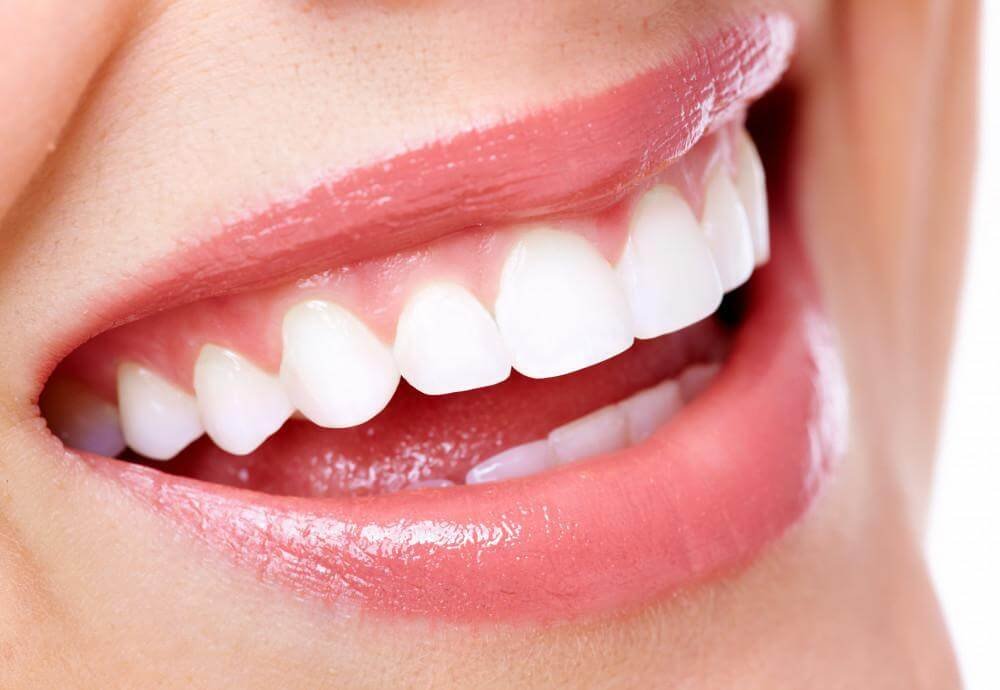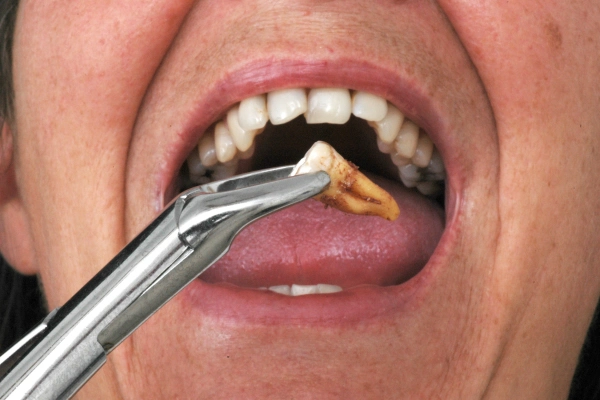Maintaining good oral health is integral to our overall well-being. While most people focus on brushing their teeth and flossing, they often overlook the importance of gum line health. The gums are a crucial part of the mouth, as they not only hold the teeth in place but also protect them from infection. Neglecting gum health can lead to various dental problems such as tooth decay, receding gums, and even tooth loss.
In this article, we will discuss the significance of gum line health and how it impacts your overall oral hygiene. We will explore ways to maintain healthy gums through proper oral care routines and diet choices. Additionally, we will provide tips on avoiding harmful habits that can damage your gums and cause dental problems. By understanding the importance of gum line health and implementing simple strategies into your daily routine, you can guard your smile against potential harm and enjoy optimal oral health for years to come.
Understanding the Importance of Gum Line Health
The condition of the tissue surrounding the teeth, specifically where it meets with the tooth enamel, is a crucial indicator of overall oral well-being. Gum line health plays an essential role in preventing inflammation and maintaining gum tissue. When gums are healthy, they act as a barrier against harmful bacteria that can penetrate the bloodstream, causing not only dental issues but also potential heart problems.
However, if plaque accumulates on teeth and gums due to poor oral hygiene habits, it can lead to gingivitis or periodontitis. Gingivitis occurs when the gum tissue becomes inflamed and irritated due to bacterial buildup on teeth’ surfaces. This condition can cause redness, swelling, bleeding gums while brushing or flossing, bad breath (halitosis), and sensitivity around the gum line. In contrast, periodontitis is a more severe stage of gum disease caused by untreated gingivitis.
https://gumlinehealer.com/common-gum-line-problems/
Maintaining healthy gums isn’t just about having a beautiful smile; it’s also about keeping your entire body healthy. By preventing inflammation and taking care of your gum tissue through regular brushing and flossing routines coupled with regular dental check-ups, you can help prevent serious oral health issues from developing later on in life.
As such, developing a good oral hygiene routine that focuses on caring for your gum line should be an essential part of everyone’s daily self-care practices. Taking care of your mouth means taking care of yourself – making small changes today will have significant benefits down the road for both your physical appearance and overall health.
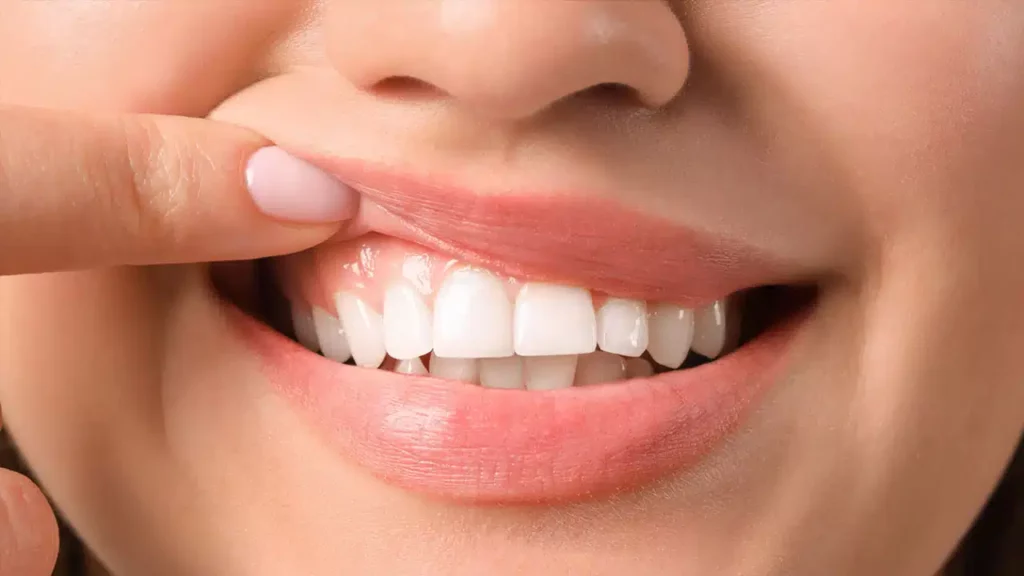
Developing a Good Oral Hygiene Routine
Maintaining a consistent and thorough oral hygiene routine is crucial for preventing gum disease and promoting overall dental health. Creating consistency in your oral hygiene routine might seem like an arduous task, but it can be achieved by incorporating small changes gradually into your daily routine. For instance, brushing twice a day for two minutes each time, flossing at least once a day, and using mouthwash after meals can go a long way in keeping your gums healthy.
Finding motivation to maintain good oral hygiene can also be challenging. However, focusing on the benefits of having healthy gums can serve as a great motivator. Healthy gums not only prevent gum disease but also play an essential role in maintaining overall body health. Research has shown that gum disease is linked to other serious health conditions such as heart disease, stroke, diabetes, respiratory infections, and even pregnancy complications.
Incorporating these small changes into your daily routine may seem insignificant but over time will significantly contribute to improving your gum line health. In our next subtopic section about eating a healthy diet for gum health, we will discuss how making dietary changes can further promote excellent dental health and prevent gum disease.

Eating a Healthy Diet for Gum Health
A nutritious diet is a crucial factor in preventing gum disease, and this section will explore how making dietary changes can contribute to promoting overall dental health. Healthy eating habits play a significant role in maintaining the nutritional balance of your body, which affects your oral health as well. Here are some dietary tips that you should consider for healthy gums:
- Incorporate more fruits and vegetables into your daily meals.
- Limit sugary and starchy foods that can cause plaque buildup.
- Choose foods rich in Vitamin C, such as citrus fruits, broccoli, and berries, to boost immune function.
In addition to these tips, drinking plenty of water helps flush out food particles and bacteria from your mouth while also keeping it hydrated. A balanced diet not only supports healthy gums but also promotes strong teeth. Proper nutrition is vital for maintaining good oral hygiene. Nutritional deficiencies may lead to weakened immune systems, which put you at risk for developing gum disease. Therefore, understanding the importance of healthy eating habits is necessary for achieving optimal dental health.
Avoiding Harmful Habits
Minimizing detrimental habits is crucial in preserving oral health and preventing gum disease, as certain behaviors can cause irreversible damage to the gums. One of the most harmful habits that people engage in is smoking. Smoking has been linked to a host of health problems, including gum disease. Smoking weakens the immune system, making it harder for the body to fight off infections like gingivitis and periodontitis. Therefore, quitting smoking is imperative for maintaining healthy gums.
Another habit that can be detrimental to gum health is consuming too much sugar. Sugar feeds bacteria in the mouth, which can lead to plaque buildup and eventually gum disease. Reducing sugar intake by avoiding sugary snacks and drinks can help prevent this buildup from occurring. Instead, opt for foods high in fiber, such as fruits and vegetables, which help clean teeth naturally.
Incorporating healthy habits into your daily routine can go a long way in preventing gum disease and promoting overall oral health. Quitting smoking and reducing sugar intake are two key steps towards achieving this goal. By doing so, you not only protect your gums but also improve your overall wellbeing. However, these steps alone are not enough; visiting the dentist regularly should also be an essential part of any oral healthcare routine.

Visiting the Dentist Regularly
Regular dental check-ups are crucial in maintaining optimal oral health and preventing potential dental problems. These appointments provide an opportunity for dentists to identify any issues early on, allowing for prompt treatment and prevention of further damage. Professional teeth cleanings also play a significant role in maintaining gum health by removing plaque buildup that cannot be eliminated through regular brushing and flossing alone.
The Importance of Regular Dental Check-Ups
Maintaining oral health requires routine examination by a qualified dental professional to ensure that any potential issues with teeth or gums are identified and treated in a timely manner. Regular dental check-ups are crucial to maintaining good oral health and preventing serious dental problems. Here are three reasons why regular dental check-ups are essential:
- Early Detection: Dental problems often don’t show symptoms until they have progressed into more advanced stages, making them difficult to treat. Regular check-ups allow dentists to identify potential issues early on, before they become major concerns.
- Prevention: Dentists can provide preventative measures such as fluoride treatments and sealants during routine exams that help protect your teeth from decay and cavities.
- Education: During check-ups, dentists can educate patients on proper oral hygiene techniques, including brushing and flossing methods tailored specifically for their individual needs.
Regular dental check-ups not only help maintain good oral health but also contribute to overall physical well-being. By identifying potential issues early on, preventive measures can be taken to avoid costly procedures down the line. As important as regular dental check-ups are, it is also essential to undergo professional teeth cleanings every six months or as recommended by your dentist. These cleanings play a vital role in removing plaque buildup that contributes to gum disease and tooth decay.
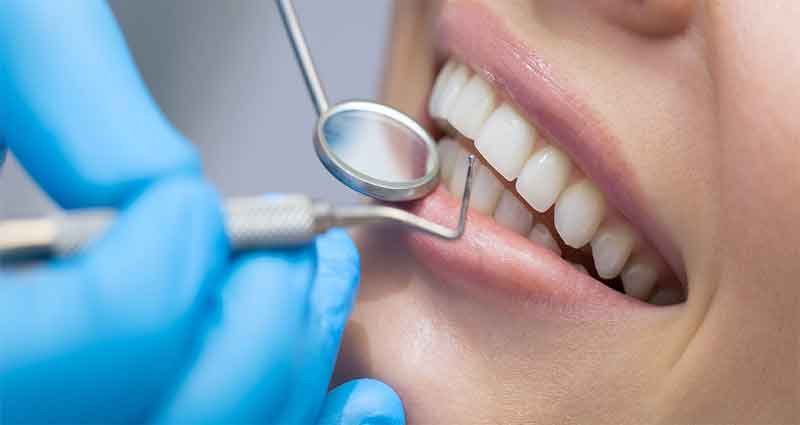
Professional Teeth Cleanings to Maintain Gum Health
Professional teeth cleanings are an essential aspect of oral health care, as they effectively remove harmful plaque buildup that can lead to various dental issues. Plaque is a sticky film of bacteria that accumulates on the surface of teeth and gums, and if left untreated, it can cause inflammation and infection in the gum tissue, leading to periodontal disease. Professional teeth cleanings help prevent gum disease by removing plaque before it hardens into tartar or calculus.
There are numerous benefits of professional teeth cleanings beyond preventing gum disease. Regular cleanings can also remove surface stains from teeth caused by food, beverages, and smoking. In addition, dentists often use these appointments as an opportunity to examine the overall health of your mouth and identify any potential problems early on. By addressing dental issues at their earliest stages, patients can avoid more extensive and costly treatments down the road. Overall, professional teeth cleanings are a crucial component of maintaining good oral health for a lifetime. As crucial as professional teeth cleaning is in maintaining healthy gums, there are times when gum disease still develops despite regular visits to the dentist. In such cases, treatment becomes necessary to prevent further damage to soft tissue around the tooth root and bone supporting it.
Treating Gum Disease
Effective treatment of gum disease involves addressing the underlying causes of inflammation and infection, such as bacterial buildup and poor oral hygiene habits. Gum disease is a common problem that affects many individuals, but it can be treated with various options depending on the severity of the condition. There are natural remedies that may help alleviate symptoms, but in advanced cases, surgical options may be necessary.
There are several approaches to treating gum disease that a dental professional may recommend. The first step is improving oral hygiene practices by brushing twice a day and flossing daily. A dentist or hygienist may also perform scaling and root planing to remove plaque and tartar buildup below the gum line. In more severe cases, surgery may be required to clean deep pockets around the teeth or reshape bone damage caused by periodontitis.
It is important to note that natural remedies for gum disease should not replace professional treatment from a qualified dentist or periodontist. However, some home remedies may help reduce inflammation and promote healing. These include oil pulling with coconut oil or using an antiseptic mouthwash made with essential oils like tea tree or peppermint oil. Consult with a dental professional before trying any new home remedy for gum disease.
Treating gum disease is critical for maintaining good oral health and preventing receding gums. The next section will discuss preventative measures that can help keep gums healthy and prevent further damage from occurring.
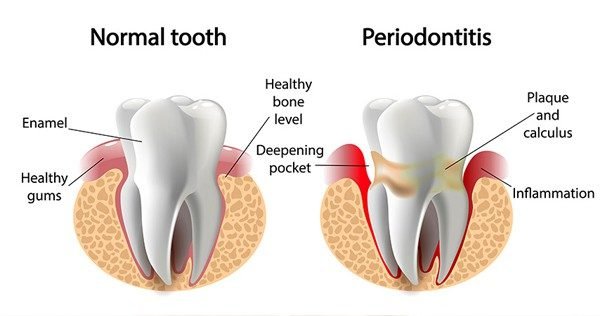
Preventing Receding Gums
Preventing the progression of gum disease and minimizing the risk of reverse receding gums can be achieved through various preventive measures. Consistent adherence to oral hygiene practices such as brushing twice a day, flossing daily, and using mouthwash can help remove plaque and bacteria that cause gum disease. Regular dental check-ups are also crucial in identifying any underlying dental issues and treating them promptly.
In addition to conventional preventive measures, natural remedies can also aid in preventing receding gums. Oil pulling with coconut oil has been found to reduce plaque buildup on teeth and improve gum health. Aloe vera gel has anti-inflammatory properties that can alleviate symptoms of gum disease such as bleeding gums. Green tea contains antioxidants that inhibit the growth of harmful bacteria in the mouth.
Preventive measures coupled with natural remedies can significantly reduce the risk of receding gums and promote overall gum line health. It is essential to prioritize oral hygiene practices and seek timely treatment for any underlying dental issues. The next section will provide a recap of essential tips for maintaining healthy gums and highlight their significance in preserving your smile’s beauty.
Gum Line Health Tips
Maintaining optimal gum health through consistent adherence to oral hygiene practices and natural remedies is crucial in preserving the overall well-being of your oral cavity. While there are many ways to prevent gum line recession, it is important to remember that prevention is always better than cure. By taking care of your gums consistently, you can avoid developing serious gum diseases that could lead to tooth decay or loss.

Consistency in caring for your gums has long-term benefits. Regular brushing, flossing, and using mouthwash are simple yet effective ways of keeping bacteria at bay and protecting your gums from damage. Additionally, incorporating natural remedies such as oil pulling with coconut oil or using aloe vera gel can help reduce inflammation and promote healing of damaged tissues.
Maintaining healthy gums is essential for overall oral health. Consistent care is crucial in preventing gum line recession and other gum-related problems. By following proper oral hygiene practices and incorporating natural remedies into your routine, you can enjoy long-term benefits such as strong teeth and a bright smile. Remember, investing time in caring for your gums today will pay off in the future with improved oral health and wellness.
Further Entities
- https://en.wikipedia.org/wiki/Teeth_cleaning
- https://www.gov.uk/government/collections/oral-health
- https://www.canr.msu.edu/news/essential-oils-an-overview
Frequently Asked Questions
Can gum disease affect other parts of the body?
Gum disease is a common dental problem that can have serious implications for systemic health. Research has linked gum disease to an increased risk of developing heart disease, stroke, and diabetes. The bacteria that cause gum disease can travel from the mouth into the bloodstream, where they can contribute to inflammation and damage in other parts of the body. Fortunately, there are effective dental procedures for treating gum disease, such as scaling and root planing, which involve removing plaque and tartar buildup from below the gum line. Maintaining good oral hygiene habits like brushing twice a day and flossing daily can also help prevent gum disease from developing or progressing. By taking care of our gums, we not only protect our smile but also safeguard our overall health.
How can stress impact gum health?
Stress can have a significant impact on gum health. Studies have shown that chronic stress can weaken the immune system, making it more difficult for the body to fight off infections. This weakened immune response can lead to inflammation in the gums and an increased risk of gum disease. Additionally, stress may also cause individuals to neglect their oral hygiene and make poor dietary choices, both of which can further contribute to gum problems. Practicing mindfulness techniques such as meditation or deep breathing exercises may help reduce stress levels, leading to improved oral hygiene habits and diet choices, ultimately promoting better gum health.
Is it possible to reverse receding gums?
Receding gums can be a result of various factors such as genetics, poor oral hygiene techniques, and gum disease. Gum grafting is a possible treatment option for receding gums where tissue from another part of the mouth is grafted onto the affected area. However, prevention through proper oral hygiene techniques such as daily brushing and flossing is crucial in maintaining healthy gums. Regular dental check-ups and cleanings can also detect early signs of gum recession and prevent further damage. While it may be possible to reverse some cases of receding gums with treatment, prevention through good oral hygiene practices remains the most effective method for maintaining healthy gum line health.
Are there any natural remedies for improving gum health?
Improving gum health can be achieved through various natural remedies. One of the most popular methods is oil pulling, which involves swishing a tablespoon of oil in your mouth for about 20 minutes and then spitting it out. This method is believed to remove harmful bacteria from your mouth and improve overall oral health. Another option is using herbal remedies such as peppermint or tea tree oil, which have been shown to have anti-inflammatory properties that can help reduce inflammation in the gums. While these natural remedies may not completely reverse severe cases of gum disease, they can provide additional support alongside regular brushing and flossing to maintain healthy gums.
Can genetics play a role in gum disease?
Genetic factors can play a significant role in the development of gum disease. Studies have shown that individuals with a family history of periodontitis are more likely to develop the disease themselves. However, while genetics may increase one’s susceptibility, preventive measures can still be taken to maintain healthy gums. Regular dental check-ups and cleanings, proper oral hygiene practices such as brushing and flossing twice daily, and avoiding tobacco use are all effective ways to prevent gum disease regardless of genetic predisposition. It is important for individuals to be aware of their family history and take proactive steps towards maintaining good oral health.
Conclusion
In conclusion, gum line health is crucial for maintaining overall oral health and preventing serious dental problems. Developing a good oral hygiene routine, eating a healthy diet, and avoiding harmful habits are all important steps in ensuring strong gums. Regular visits to the dentist can also help identify and treat any issues before they become worse. In cases of gum disease or receding gums, seeking prompt treatment is essential to prevent further damage.
By taking these measures to care for our gums, we can not only protect our teeth but also maintain a healthy smile for years to come. It is crucial to understand that the importance of gum line health otherwise neglecting the health of our gums can have serious consequences and lead to painful and costly procedures down the line. With proper care and attention, we can safeguard our smiles and enjoy optimal oral health throughout our lives.

